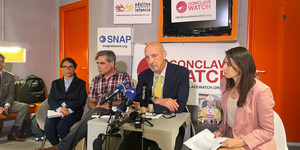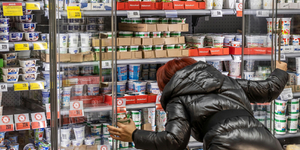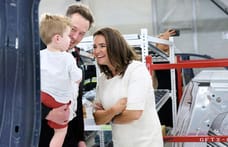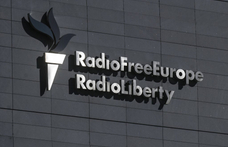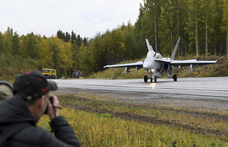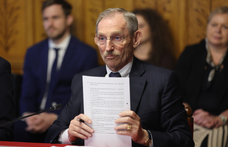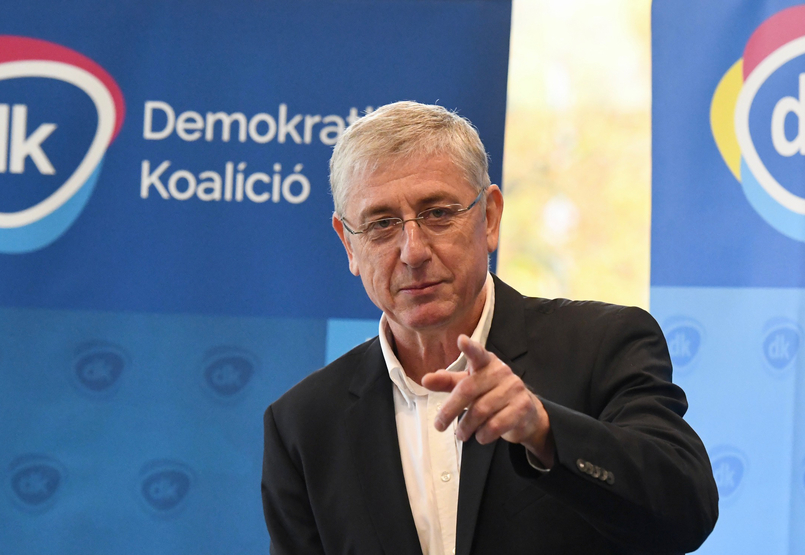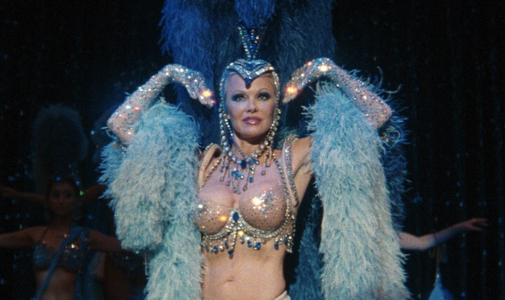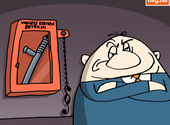"What do they want? Gas or independence from Russia?"
Recently, negotiations began between the EU and Russia on a new strategic cooperation agreement. The 54-year-old Vladimir Chizhov, Russia's ambassador to the EU, is reluctant to overdramatise the energy policy questions that are at the centre of the discussions.
HVG: The EU is Russia's major trade partner, and for the EU, Russia is in third place after the US and China. An increasing share of the EU's energy is coming from Russia. But the relationship between the two parties is very tense. Why?
V. Ch.: In a globalising, multi-polar world, we're not just partners, but competitors as well. I wouldn't say we have a cold relationship, but it's complicated, because it spans so many areas. Trade between the two sides runs to around $300bn a year. Our relations also incorporate the humanitarian sphere - education, research and culture, as well as foreign and security policy. It causes problems for all of the EU's external partners that there is a grey area between areas of EU competence and those areas reserved for the member states. Enlargement hasn't improved this situation, because some new member states - I'm not thinking of Hungary, necessarily - have put questions on the agenda relating to Russia-EU relations that are, in our view, not strictly bilateral, and which relates to certain historical wounds.
HVG: In Brussels, people see the problem as being Russia's attempt under Vladimir Putin's presidency to become a great power in a way very reminiscent of the foreign policy of the Soviet times.
V. Ch.: The principles of Russian foreign policy haven't changed, but we have more options. Russia is going through an economic boom, giving us more money for international cooperation, for providing aid, for taking part in peacekeeping operations. So it's natural that Russia is more focused on playing the role that international relations and its history destine it to. You can reach an agreement with Russia, but you can't set ultimatums.
HVG: Energy policy is at the centre of EU-Russian relations, but it's like a dialogue of the deaf. The EU is aiming to liberalise the transit of energy over Russia's territory and would like more protection for European investments in the country. Moscow is concerned that the EU won't allow Russian energy companies into its internal market. What kind of solutions is Russia thinking of?
V. Ch.: I don't want to overdramatise the energy issue. We think the problem is that the EU doesn't know what it wants. The European Commission wants to split up the vertically integrated energy companies and liberalise the market, while certain member states want "national champions." The European gas market developed during the Cold War, but the west European politicians were far-sighted enough to put aside the ideological oppositions and opt for long-term cooperation with the Soviet Union. The US didn't like this at the time. Imagine what we would have now if western Europe hasn't taken the strategic decision in the 60s and 70s and had opted for liberalisation? Would Europe be heated with wood? Energy is not a vegetable market where people take their wares in the morning and leave at noon with their earnings. It costs a fortune to develop an oil or gas field before you start selling the fuel. So it's not fair to talk only about security of supply, because stable supply needs stable transit and stable demand. Every investor wants to be sure that he will have a buyer for his produce in 15 or 20 years' time.
HVG: There won't be any problem with demand - the issue is transit. Three big gas pipelines are planned: North and South Stream, both Russian-inspired projects, and Nabucco, which is supported by the EU. What's Russia's view of the latter?
V. Ch.: Given growth in European gas consumption, North and South Stream and Nabucco as well as another half dozen other pipelines will all be needed. The point is to have gas flowing inside them. For the time being, the main difference between South Stream and Nabucco is that, while the former will definitely have gas in it, there is a question mark over whether Nabucco can be filled. I wouldn't advise the project's supporters to count on Azerbaidzhan, because they don't have enough gas. Nabucco would make sense if it also carried Iranian gas. But for that, Europe has to decide whether it wants to bomb Iran or buy gas from it.
HVG: It looks like Russia wants to create a monopoly situation in the Caspian region, buying up gas from in front of the EU's nose. Is that the Putin-doctrine, using energy to serve Russian foreign policy interests?
V. Ch.: We don't buy a single cubic metre of gas from Azerbaidzhan - although we do in Turkmenistan, where a pipeline remains from Soviet times - and we feed that into the European supply network. There's nothing unacceptable in this. I think it's more right to talk about a Bush doctrine. Which country's diplomats travel around Central Asia, persuading governments to build alternative pipelines? Who dreamed up the oil pipeline linking Baku with Ceyhan in Turkey with the single aim of avoiding Russia? Where does the Nabucco idea come from? Should the consumer countries be deciding between gas and independence from Russia? Russia shouldn't be a bogeyman - we have a mutual dependence. We don't have the pipelines to sell gas to anywhere apart from Europe.
HVG: That's why Gazprom is building a pipeline to China. You know the Balkan region well as well. How do you see Kosovo's future after independence?
V. Ch.: We've also emphasised the primacy of international law. Kosovo's status can be determined via negotiations - there is no other solution, since a unilateral declaration of independence won't be sustainable. It's thought-provoking that Kosovo is recognised only by less than a quarter of the world's countries - including just three Muslim countries, and just two in Latin America. Six EU member states haven't recognised Kosovo. I heard the foreign minister of one of those countries say they will refuse to recognise Kosovo even if Belgrade does.
HVG: It's been reported that Russia is putting heavy pressure on the UN Secretary General to delay UNMIK's withdrawal from Kosovo, making it harder for the EU's civilian mission, EULEX to start its work.
V. Ch.: We just reminded Ban Ki Moon of the relevant security council resolution. UNMIK's mandate can only be terminated by a new security council resolution. If the EU has the strength and resources to deal with Kosovo, we are ready to support this - so long as Belgrade agrees and the decision is enshrined in a security council resolution.
HVG: The EU argues that delaying a decision on Kosovo would have risked destabilising the region. But it seems that the two Kosovan communities - the Albanians and the Serbs - can't live together in one state.
V. Ch.: Yes, the situation has become serious. But who got Kosovo to this point? The people who urged the Albanians to keep negotiating for a while longer, since they'd get independence eventually! It wasn't just the Americans, the British, the French and the Germans who encouraged them. Is it any easier for Greek and Turkish Cypriots, for the Spanish and the Basques living under one roof? The Kosovo precedent is now being felt in the Caucasus. The Abkhazians, who want to split from Georgia, and the Ossetians are asking the same question: if the Albanians can, why can't we?
HVG: Let's not forget that the international community's intervention was preceded by a genocide in Kosovo. Moscow has made the odd remark that would seem to be encouraging the separatists of the Caucasus.
V. Ch.: We have to react because since Kosovo declared independence, the Abkhazians and the Ossetians have been under growing pressure. We won't recognise Abkhazia's or South Ossetia's independence. If we thought that was the solution we'd just remain silent until everyone had recognised Kosovo and then we'd do the same with Abkhazia and South Ossetia.
LÁSZLÓ VIDA / BRUSSELS


